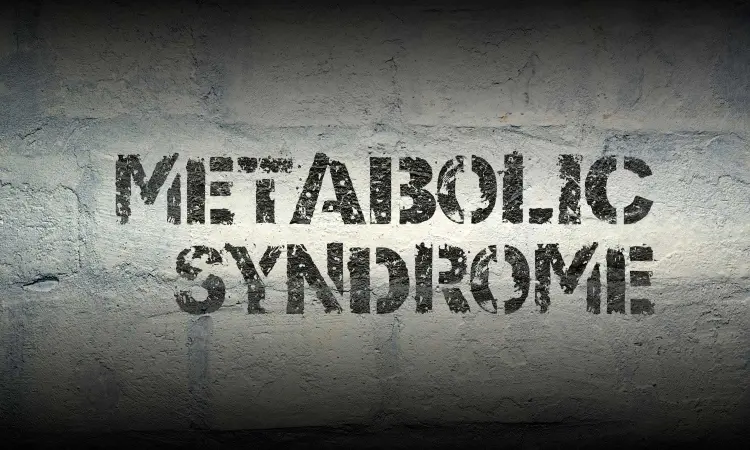- Home
- Medical news & Guidelines
- Anesthesiology
- Cardiology and CTVS
- Critical Care
- Dentistry
- Dermatology
- Diabetes and Endocrinology
- ENT
- Gastroenterology
- Medicine
- Nephrology
- Neurology
- Obstretics-Gynaecology
- Oncology
- Ophthalmology
- Orthopaedics
- Pediatrics-Neonatology
- Psychiatry
- Pulmonology
- Radiology
- Surgery
- Urology
- Laboratory Medicine
- Diet
- Nursing
- Paramedical
- Physiotherapy
- Health news
- Fact Check
- Bone Health Fact Check
- Brain Health Fact Check
- Cancer Related Fact Check
- Child Care Fact Check
- Dental and oral health fact check
- Diabetes and metabolic health fact check
- Diet and Nutrition Fact Check
- Eye and ENT Care Fact Check
- Fitness fact check
- Gut health fact check
- Heart health fact check
- Kidney health fact check
- Medical education fact check
- Men's health fact check
- Respiratory fact check
- Skin and hair care fact check
- Vaccine and Immunization fact check
- Women's health fact check
- AYUSH
- State News
- Andaman and Nicobar Islands
- Andhra Pradesh
- Arunachal Pradesh
- Assam
- Bihar
- Chandigarh
- Chattisgarh
- Dadra and Nagar Haveli
- Daman and Diu
- Delhi
- Goa
- Gujarat
- Haryana
- Himachal Pradesh
- Jammu & Kashmir
- Jharkhand
- Karnataka
- Kerala
- Ladakh
- Lakshadweep
- Madhya Pradesh
- Maharashtra
- Manipur
- Meghalaya
- Mizoram
- Nagaland
- Odisha
- Puducherry
- Punjab
- Rajasthan
- Sikkim
- Tamil Nadu
- Telangana
- Tripura
- Uttar Pradesh
- Uttrakhand
- West Bengal
- Medical Education
- Industry
Metabolic syndrome in women associated with carotid artery thickness regardless of obesity

A recent investigation examined the combined influence of metabolic syndrome (MetS) and obesity on markers of early atherosclerosis-carotid artery intima media thickness (cIMT) and adventitial diameter (AD). This study was published in the Menopause journal by Leis and colleagues.
Carotid ultrasound assessments conducted as part of the Study of Women's Health Across the Nation (SWAN) between 2009 and 2013 were analyzed in a cross-sectional study involving 1,433 women. The findings of the study were as follows:
- Increased Atherosclerotic Risk: Women with obesity showed an average cIMT increase of 0.051 mm, while those with MetS had a 0.057 mm larger cIMT compared to counterparts without these conditions (both P < 0.001).
- Combined Impact: A significant interaction was observed between obesity and MetS (P = 0.011). Women affected by both conditions exhibited a higher model-adjusted predicted mean cIMT of 0.955 mm (95% CI, 0.897-1.013) compared to those with MetS alone (0.946 mm; 95% CI, 0.887-1.005), obesity alone (0.930 mm; 95% CI, 0.873-0.988), or neither condition (0.878 mm; 95% CI, 0.821-0.935). Similar patterns were observed in AD measurements.
This study underscores the importance of identifying and addressing atherosclerotic changes at early stages to prevent the development of significant cardiovascular disease. It suggests that the impact of obesity on carotid artery thickness appears to be limited when considering MetS alone.
The findings emphasize the heightened atherosclerotic risk associated with metabolic dysfunction, irrespective of an individual's obesity status. It reinforces the notion that individuals affected by metabolic abnormalities warrant close attention due to their increased vulnerability to atherosclerosis-related changes.
Understanding the combined effects of MetS and obesity on arterial health provides crucial insights into risk stratification and preventive strategies for early atherosclerosis detection and intervention.
Reference:
Leis, A. M., Jackson, E. A., Baylin, A., Barinas-Mitchell, E., El Khoudary, S. R., & Karvonen-Gutierrez, C. A. Carotid intima media thickness and cardiometabolic dysfunction: the Study of Women’s Health Across the Nation. Menopause (New York, N.Y.),2023;30(12):1190–1198. https://doi.org/10.1097/gme.0000000000002273
Dr Riya Dave has completed dentistry from Gujarat University in 2022. She is a dentist and accomplished medical and scientific writer known for her commitment to bridging the gap between clinical expertise and accessible healthcare information. She has been actively involved in writing blogs related to health and wellness.
Dr Kamal Kant Kohli-MBBS, DTCD- a chest specialist with more than 30 years of practice and a flair for writing clinical articles, Dr Kamal Kant Kohli joined Medical Dialogues as a Chief Editor of Medical News. Besides writing articles, as an editor, he proofreads and verifies all the medical content published on Medical Dialogues including those coming from journals, studies,medical conferences,guidelines etc. Email: drkohli@medicaldialogues.in. Contact no. 011-43720751


